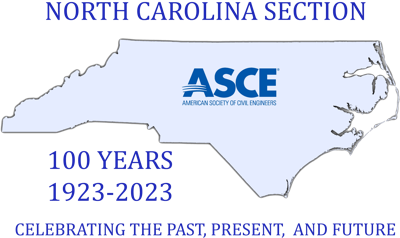Speakers:
1) Floyd Williams, PE, Project Manager, Duke University
2) Damian Hamlin, DBIA, Project Executive / Associate Principal, Beck Architecture
3) Carl Anderson, Senior Superintendent, Beck Group
Date: Friday, April 15, 2016
Topic: Site Visit - Duke University Athletic Construction
Presentation: None.
Overview: The group toured the athletics projects at Duke University. These three projects include enhancements to Wallace Wade Stadium (the new Press Box Tower Construction), Cameron Indoor Stadium extension, and the Murray Building expansion (which supports "Olympic" sports). These projects include 164,000 SF of new construction and 9,000 SF of renovation. This site visit gave attendees the chance to hear about the construction projects, as well as interact with students from the Civil and Environmental Engineering Department at Duke.
About the speakers/tour guides:
Floyd Williams, PE, Project Manager, Duke University - Floyd graduated from NC State University in 1979 with a BS in Civil Engineering. He spent 5 years as a construction engineer on the Shearon Harris Nuclear Power Plant project, and another 5 years on large construction projects in Saudi Arabia with Fluor-Daniel Construction Company. Floyd worked as a Project Manager for 15 years at UNC-Chapel Hill and NC State University before coming to Duke University. While at NCSU and UNC he managed new building projects, renovations of several old buildings and upgrades to utility infrastructures. He has been at Duke University for 8 years, and has completed the renovation of three major projects, Smith Warehouse, East Campus Steam Plant, and West Campus Steam Plant. Floyd is now managing the design and construction of the Wallace Wade Stadium Upgrades, Scott Family Pavilion and Cameron Indoor Stadium Expansion projects for Duke Athletics.
Damian Hamlin, DBIA, Project Executive / Associate Principal, Beck Architecture - Originally from Silver Spring, Maryland, Damian graduated from Virginia Tech with a Bachelor's of Architecture in 2001, spending the summer of 2000 as a construction management intern with Beck. His passion for both design and construction was a perfect fit for a career at Beck. Over the course of his fifteen years with Beck, he has contributed or led both third-party design, third-party construction and design-build projects. His projects have ranged from sports venues, retail, hospitality, federal government, higher education, religious and office space. Many of these projects were complex renovations. He is currently the Integrated Project Leader for the various projects Beck is completing for Duke including the Wallace Wade Stadium Upgrades, Scott Family Pavilion and Murray Renovation, Cameron Indoor Stadium Expansion and Blue Devil Plaza.
Carl Anderson, Senior Superintendent, Beck Group - After growing up in Fairfax, Virginia, Carl graduated from Auburn University in 1980 with a degree in Construction Management. His affinity for the construction industry was a family tradition. His father was a construction superintendent and his eight brothers were all somehow affiliated with the industry. With thirty-five years of experience in the industry, all with Beck, he has grown into one of Beck's most experienced Senior Superintendents. Much of the last ten years have been spent leading the field operations for construction projects on Duke's campus including the Nasher Museum of Art, Brooks Football Halftime House, Pascal Football Practice Facility, Basketball Practice Facility and Center for Academic Excellence, and the current portfolio of athletic precinct projects including the Wallace Wade Stadium Upgrades, Scott Family Pavilion and Murray Renovation, Cameron Indoor Stadium Expansion and Blue Devil Plaza




















